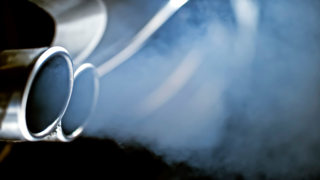Local authorities should avoid charging motorists to drive into the UK’s most polluted towns and cities, draft air quality plans have suggested.
After trying to delay its publication, the Government finally issued draft plans today (Friday, May 5), but an expected diesel scrappage scheme does not appear central to its plan.
Clean Air Zones (CAZs), where local authorities may be able to charge entry to vehicles which fall below minimum emission standards do feature. However, the Department for Environment, Food and Rural Affairs (Defra), which has launched a consultation on the plan, says it would prefer local authorities not to charge motorists.
“Given the potential impacts on individuals and businesses, when considering between equally effective alternatives to deliver compliance, the Government believes that if a local authority can identify measures other than charging zones that are at least as effective at reducing NO2, those measures should be preferred,” the report says. “This includes considering all equally effective alternatives to charging zones.”
Previously, the Government had identified five cities – Birmingham, Leeds, Nottingham, Derby and Southampton – where CAZs would need to be introduced. It still expects these cities to have implemented schemes by 2019, with a view to achieving statutory NO2 limits within “the shortest time possible”, expected to be 2020.
However, a further 36 towns and cities, not including London, have been identified as not meeting legal NO2 limits by 2020 if no additional measures are introduced.
A diesel scrappage scheme is not mentioned in the actual 86-page air quality plan, but a technical report which accompanies it does consider its merits and the Government is keen to know what people think in the consultation.
The technical report puts the cost of a scheme at £60 billion, based on scrapping all pre-Euro 6 diesel cars and vans in the UK in 2019 (8 million cars and 2 million vans, with grant levels of £6,000 and £6,500 respectively).
However, it also considers a smaller, more targeted scheme open to drivers of diesel Euro 1-5 cars and drivers of petrol Euro 1-3 cars, with vehicles being replaced with pure electric vehicles (EVs).
The Government says that this could be tied in with the existing plug-in car grant scheme. The modelling assumes that 15,000 vehicles (9,000 diesel and 6,000 petrol vehicles) would be scrapped at a cost of £110m, with a grant of £8,000. The scheme would start in 2019 and be available for one year only. However, it says that it would take between 18-24 months before a scheme could be launched.
Gerry Keaney, chief executive of the British Vehicle Rental and Leasing Association (BVRLA), said: “We believe a national scrappage scheme could make a significant contribution in reducing NOx emissions by removing some of the oldest, most polluting cars and vans from our roads."
Environmental law firm Client Earth, which forced the Government to re-think its approach to reducing NO2 for a second time in 18 months at the end of last year, accused the Government of “passing the buck”.
CEO James Thornton said: “The court ordered the Government to take this public health issue seriously and, while the Government says that pollution is the largest environmental risk to public health, we will still be faced with illegal air quality for years to come under these proposals.
“There needs to be a national network of clean air zones which prevent the most polluting vehicles from entering the most illegally polluted streets in our towns and cities. We fail to see how the non-charging clean air zones, proposed by the Government, will be effective if they don’t persuade motorists to stay out of those areas.
“The Government seems to be passing the buck to local authorities rather than taking responsibility for this public health emergency.”
He added: “The Government has also failed to commit to a diesel scrappage scheme and this is a crucial element of the range of measures needed to persuade motorists to move to cleaner vehicles.”
Dearman’s commercial director David Sanders was pleased to see the Government had also recognised the impact of transport refrigeration units on Britain’s air quality. "These diesel-run units are disproportionately polluting and local authorities implementing clean air zones should encourage fleet operators to shift to the affordable zero emission units that are already available," he said.
"The transport sector faces ever closer scrutiny because of its reliance on diesel, but the industry needs support as well as regulation if it is to transition to cleaner alternatives, that is why the draft air quality plan as a whole must encourage take-up of cleaner, greener technologies.”
There are roughly 84,000 TRUs on Britain’s roads, many of which depend on outdated auxiliary diesel engines, which can emit up to six times as much nitrogen oxide (NOx) and almost 30 times as much particulate matter (PM) as a Euro 6 heavy goods vehicle engine.
The consultation will run until June 31, with the final plan due to be published by July 31.
For more industry reaction to the Government's air quality plan, click here.
























Login to comment
Comments
No comments have been made yet.